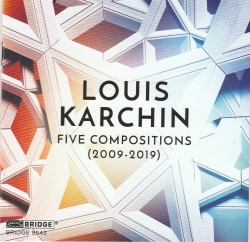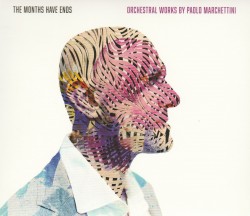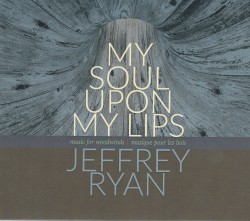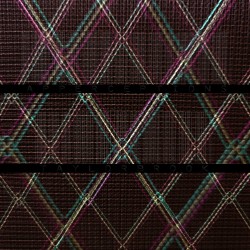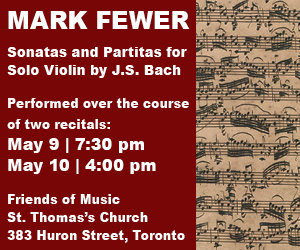Jan Järvlepp – Concerto 2000 and other works
Pascale Margely; Janáček Philharmonic; Zagreb Festival; Moravian Philharmonic
Navona Records nv6291
(navonarecords.com/catalog/nv6291)
Jan Järvlepp – Flights of Fancy: Chamber Works
Various Artists
Navona Records nv6323
(navonarecords.com/catalog/nv6323)
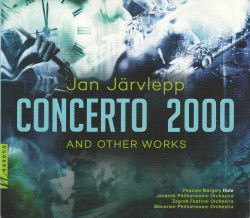 It is a pleasure to review two retrospective discs of music by Ottawa-based composer Jan Järvlepp (b.1953). Growing up, he played classical cello, popular music on several instruments and studied composition, then turned in a post-modern direction – incorporating influences from pop, jazz and Hispanic, Arab or Nordic folk styles. The disc Concerto 2000 includes orchestral music from the last 30 years while Flights of Fancy contains chamber music composed and recorded in the 1990s. Three orchestras, mostly Czech, were recorded for the former between 2017 and 2019. I am especially impressed by the title work, with outstanding flute soloist Pascale Margely. Each movement is characterized by a folk style: Caliente! with exciting flamenco rhythm, wood instruments and hand clapping is appealing; the atmospheric Nocturne, which evokes Arabic singing, is a deep, increasingly complex and tragic work. In Memoriam (2016) is a processional work for strings that I found solemn and dignified. Camerata Music (1989) is a highly successful minimalist composition, with a pentatonic string ostinato soon doubled at the fifth by a flute. This is an example of the pervasive parallelism that is a fingerprint of Järvlepp’s music. Here it produces interesting harmonies and occasional clashes with increasingly divergent motifs and phrases above, as the ostinato breaks up. Other instruments are added and the work builds well. The other tracks are more pop-influenced, including the recent Brass Dance (2018) in which parallelism applies to diminished chords and train-horn sounds. But though they are entertaining, for me the pop elements sound familiar and somewhat tongue-in-cheek.
It is a pleasure to review two retrospective discs of music by Ottawa-based composer Jan Järvlepp (b.1953). Growing up, he played classical cello, popular music on several instruments and studied composition, then turned in a post-modern direction – incorporating influences from pop, jazz and Hispanic, Arab or Nordic folk styles. The disc Concerto 2000 includes orchestral music from the last 30 years while Flights of Fancy contains chamber music composed and recorded in the 1990s. Three orchestras, mostly Czech, were recorded for the former between 2017 and 2019. I am especially impressed by the title work, with outstanding flute soloist Pascale Margely. Each movement is characterized by a folk style: Caliente! with exciting flamenco rhythm, wood instruments and hand clapping is appealing; the atmospheric Nocturne, which evokes Arabic singing, is a deep, increasingly complex and tragic work. In Memoriam (2016) is a processional work for strings that I found solemn and dignified. Camerata Music (1989) is a highly successful minimalist composition, with a pentatonic string ostinato soon doubled at the fifth by a flute. This is an example of the pervasive parallelism that is a fingerprint of Järvlepp’s music. Here it produces interesting harmonies and occasional clashes with increasingly divergent motifs and phrases above, as the ostinato breaks up. Other instruments are added and the work builds well. The other tracks are more pop-influenced, including the recent Brass Dance (2018) in which parallelism applies to diminished chords and train-horn sounds. But though they are entertaining, for me the pop elements sound familiar and somewhat tongue-in-cheek.
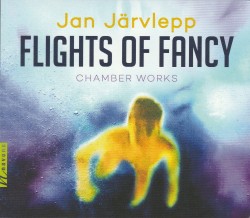 Flights of Fancy: Chamber Works is the other current release. It opens brilliantly with Pierrot Solaire (1994), an extended tour de force that is clearly pop in derivation, but with substantial smooth and contrasting interludes led by the violin. Later, there is cross-cutting between shorter music segments, and towards the end instruments become frenetic virtuosos. A three-movement Saxophone Quartet (1996) is played by the excellent ensemble, Saxart. The opening movement, Cadillac, is a perpetual motion piece, blues-evoking and witty with virtuosic solo turns by each saxophone for contrast. Space does not allow for every work on this disc, but we must note that the versatile composer has played with and composed for many musicians in the Ottawa area, establishing lasting connections. He appears as electric guitarist on Tarantella (1996) and as cellist on Trio No.2 (1997). In the latter, flutist Margely and violist Kevin James join with Järvlepp in a piece whose opening movement achieves unique and beguiling combinations involving string harmonics. Another aspect of these chamber pieces is the composer’s adeptness with instrumentation for many different instruments, something that has facilitated his orchestral composing. In fact, though the chamber works are earlier than the orchestral ones, these two CD’s belong together – the working out of a long and productive compositional practice.
Flights of Fancy: Chamber Works is the other current release. It opens brilliantly with Pierrot Solaire (1994), an extended tour de force that is clearly pop in derivation, but with substantial smooth and contrasting interludes led by the violin. Later, there is cross-cutting between shorter music segments, and towards the end instruments become frenetic virtuosos. A three-movement Saxophone Quartet (1996) is played by the excellent ensemble, Saxart. The opening movement, Cadillac, is a perpetual motion piece, blues-evoking and witty with virtuosic solo turns by each saxophone for contrast. Space does not allow for every work on this disc, but we must note that the versatile composer has played with and composed for many musicians in the Ottawa area, establishing lasting connections. He appears as electric guitarist on Tarantella (1996) and as cellist on Trio No.2 (1997). In the latter, flutist Margely and violist Kevin James join with Järvlepp in a piece whose opening movement achieves unique and beguiling combinations involving string harmonics. Another aspect of these chamber pieces is the composer’s adeptness with instrumentation for many different instruments, something that has facilitated his orchestral composing. In fact, though the chamber works are earlier than the orchestral ones, these two CD’s belong together – the working out of a long and productive compositional practice.
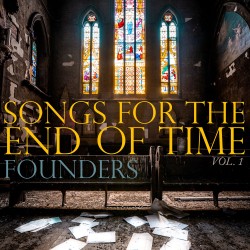 Songs for the End of Time Volume 1
Songs for the End of Time Volume 1

